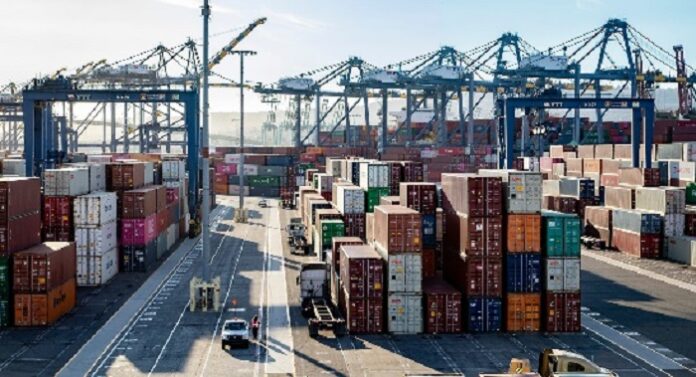
-
Maritime supply chains need to be strengthened to make them overcome future crises similar to the 2021 e-commerce-fueled freight rate surge, UNCTAD says
-
Freight rates rose in 2021 to five times their pre-pandemic levels, propelled by consumer e-commerce spending, and remain above those 2019 levels despite falling shipping and charter rates since mid-2022, UNCTAD’s “Review of Maritime Transport 2022” says
-
Russia’s invasion of Ukraine, combined with the prolonged pandemic and supply chain crisis, especially drove up dry bulk freight rates and halted Ukrainian grain shipments for six months that led to a food crisis in poor countries
-
An UNCTAD simulation shows higher grain prices and dry bulk rates can lift consumer food prices 1.2% and even higher in middle- and low-income countries
Maritime supply chains need investments to make them more resilient to future crises similar to the 2021 e-commerce-fueled consumer spending surge that, combined with supply chain disruptions and logistics constraints, drove up container freight rates to five times their pre-pandemic levels, UNCTAD says.
Container shipping rates peaked in early 2022 but began declining at mid-year but are still above 2019 levels, impacting the poor countries most, the United Nations Conference on Trade and Development said in its flagship “Review of Maritime Transport 2022”.
Dry bulk rates – for unpackaged raw materials such as grains – also rose due to the war in Ukraine, the prolonged pandemic and supply chain crisis, the UN agency said.
An UNCTAD simulation shows that higher grain prices and dry bulk freight rates can lead to a 1.2% hike in consumer food prices, with greater increases in middle- and low-income countries, the report cited.
Related report: https://www.portcalls.com/unctad-sees-slower-growth-of-1-4-in-global-maritime-trade-for-2022/
Although freight and charter rates have fallen since mid-2022, they are still above pre-COVID-19 levels while rates remain high for oil and natural gas tanker cargo due to the ongoing energy crisis arising from the Ukraine war.
In an increasingly unpredictable operating environment, future shipping costs will likely be higher and more volatile than in the past, the report said.
The last two years’ supply chain crisis has highlighted that a mismatch between demand and supply of maritime logistics capacity leads to surges in freight rates, congestion, and critical interruptions to global value chains, UNCTAD said.
The UN agency said with more than 80% of global trade is seaborne – an even higher percentage for most developing countries – maritime supply chains need an urgent boost to their resilience to shocks, which fuel inflation and affect the poorest the most.
“We need to learn from the current supply chain crisis and prepare better for future challenges and transitions. This includes enhancing intermodal infrastructure, fleet renewal and improving port performance and trade facilitation,” UNCTAD Secretary-General Rebeca Grynspan said in a statement.
Shamika N. Sirimanne, director of UNCTAD’s technology and logistics division, said the lesson learned from the supply chain crisis “is that ports and shipping greatly matter for a well-functioning global economy.”
Sirimanne said higher freight rates had led to surging consumer prices, especially for the most vulnerable, with supply chain disruptions leading to lay-offs and food insecurity.
UNCTAD said countries should carefully assess potential changes in shipping demand, develop and upgrade port infrastructure and hinterland connections while involving the private sector.
Many supply chain disruptions can also be eased through trade facilitation, notably through digitalization, which cuts waiting and clearance times in ports and speeds up documentary processes through e-documents and electronic payments, the report said.




